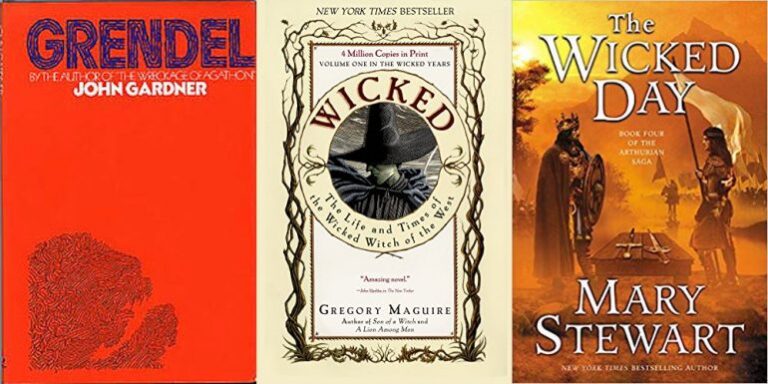Episodia 1.5: Mad Men’s Tell-Tale Heart
For six seasons now, television viewers have been transfixed by advertising phenom Don Draper’s troubled smolder as he winds his way through Manhattan’s boardrooms, bedrooms, and bars. Each episode is loaded with literary jewels for writers to fawn over: the elegant use of space (that office elevator really knows how to open and close a scene); objects that indicate a break in the psyche (cigarettes and glass tumblers, anyone?); and norm-defining costumes (can we appreciate, for a moment, the ways in which Betty Draper’s wardrobe reflects the suffocating gender dynamics of the 1960s, from her A-line skirts and pearls to her pink quilted housecoat?). But to me, these are just icing on this ambition-meets-love-meets-domesticity cake.
The magic trick in “Mad Men” I find so mind-swervingly stunning is how the show transforms its main concern—mid-century gender norms—into the heart of its appeal. This show doesn’t just reveal the evils of those norms, it proves how gender stratification punished the men as well as the women. And most impressively, it explores these dynamics even though the characters themselves—born and bred in this world—are barely aware of them. It manages to do this thanks to what I call “the hidden narrator.”
What is a hidden narrator? I’ll define it this way: The hidden narrator eschews blatant story-telling techniques in favor of nuance, allowing space for the reader/viewer to draw his or her own conclusions. A hidden narrator is not the protagonist, the antagonist, or even a character at all. A hidden narrator is just that—hidden but not invisible, silent but not absent, an unseen force pulling the strings behind the curtain.
Perhaps because this show celebrates the slick subliminality of advertising, “Mad Men” nails the art of the hidden narrator better than any other program on television. In the episode from Season 1 that first hooked me, titled “Babylon,” the hidden narrator works behind the scenes to craft an answer to the question building in our minds: What’s behind Don’s quizzical compulsions?
The episode’s recap (sans spoilers): Sterling Cooper writes ad copy for Belle Jolie Lipstick and the Israel Tourism Bureau. Don recovers a lost childhood memory as his affair grows stale. Doesn’t sound that exciting, does it? Therein lies the magic.
The first principle of the hidden narrator: Defy summary.
From the beginning, this show has been more about the quest for clarity rather than clarity itself. Clarity, like summary, becomes both reductive and impossible when applied to the feverish excess found on Madison Avenue. In “Mad Men,” what happens is never as gripping as why it happens. And to determine why it happens, we need to watch the whole series and answer that question for ourselves.
Consider this: How would the “Mad Men” aesthetic differ if it were narrated by Don’s voice-over? It would indicate he’s reached a point of understanding about his life, thus shaping his own memories to share a specific insight with his audience. In other words, he (the protagonist) and the narrator would be of the same mind. But instead, the hidden narrator shares things the protagonist knows not, leading us to conclusions that Don himself might protest. Is there a more compelling way to cast a character, capture the conflict of a generation, or narrate a life and time? I think not.
The second principle of the hidden narrator: Prime the reader for the end from the beginning.
“Priming” is an effective technique to use when foreshadowing feels too heavy-handed. It has nothing to do with defining expectations and everything to do with setting the mood. In “Babylon,” when Don meets for drinks with the current object of his desire, a Jewish woman named Rachel, we get our first clue as to what’s haunting this insatiable man. They discuss the draw of Israel, and Rachel explains that the Jews have been in exile ever since Babylon. Out of this, a longing was born:
“Utopia. The Greeks had two meanings for it. U-topos, meaning ‘the good place,’ and oo-topos, meaning ‘the place that cannot be.’”
Why is this hidden narration and not simply dialogue? First, it has relevance for the subject at hand, as Don attempts to decipher Israel’s magnetism. Second, it sets the mood of romantic melancholy not just for the scene, but for the entire episode, and the series as a whole. In three lines, we have a touchstone for the scope of an entire narrative. And third, this line reaches beyond the confines of the story and offers a truth about the world in which we live.
This reminds me of a line in Dave Eggers’s masterpiece A Heartbreaking Work of Staggering Genius, where he writes about how he, a man in his early twenties caring for his younger brother after their parents’ death, is perceived by the other attendees at a school’s open house:
“We are unusual and tragic and alive.”
Just like Rachel’s line, this sentence snaps the scene into focus, offers an anchor for the narrative, and suggests the lasting importance of the work beyond the story itself. When writers craft sentences that work double-and-triple time, they aren’t just telling a good story. They’re often adding insight to the ongoing conversation of what it means to be human.
The final principle of the hidden narrator: Craft an ending that makes the reader reconsider everything that came before it.
The reason why “Babylon” is such a homerun is its conclusion. For the entire episode, we’ve been primed for the ways in which material excess denies the heart its true desires. The final scene begins with Don at a bar, listening to the lyrics of Don McLean’s “Babylon:”
“By the waters, the waters of Babylon, we lay down and wept, and wept, for thee, Zion.”
All the episode’s threads intertwine as we witness the characters longing for their own utopias. Don, a man known by a name that is not his own, sits next to a woman who isn’t his wife. Rachel lingers over a men’s necktie as she closes her father’s department store on 5th Avenue. In front of her vanity mirror, Betty Draper dresses her young daughter in her own gown and lipstick. Roger zips the back of his lover’s dress before the two part for the night, each leaving the hotel alone. These characters, all different in wealth and stature, find themselves in exile from home, from love, and from their very selves.
By the hand of the hidden narrator, we arrive at a difficult truth that the characters are still circling: Futility is essential in the art of being human.


